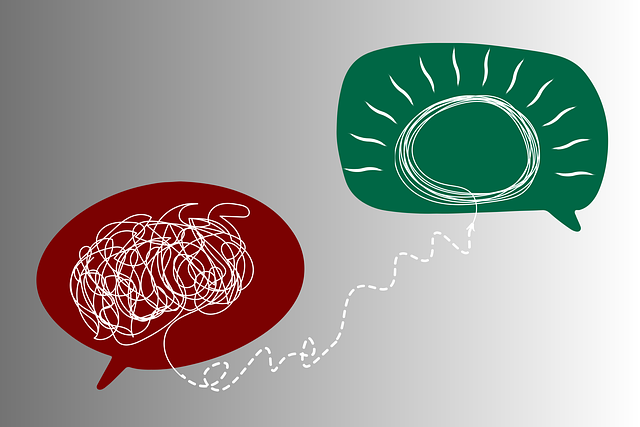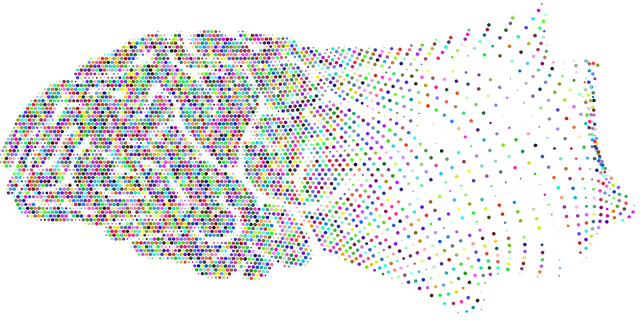Centennial Blended Families Therapy tackles unique emotional challenges through specialized techniques like mindfulness training, cognitive reframing, and self-care practices. Integrating CBT, MBSR, and Family Systems Theory, this program offers interactive therapy sessions, a podcast series, and coaching to foster open communication, address past traumas, and promote healthier attachment styles for long-term mental wellness.
Emotion regulation techniques teaching plays a pivotal role in fostering healthy dynamics within blended families. This article delves into the intricate world of managing emotions, focusing on the unique challenges faced by blended families. We explore the transformative power of Centennial Blended Families Therapy, offering practical strategies for effective emotion regulation. Through practical techniques and integrated therapies, families can build resilience and navigate emotional landscapes with greater ease. Discover how these approaches empower blended households to thrive.
- Understanding Emotion Regulation in Blended Families
- The Role of Centennial Blended Families Therapy
- Practical Techniques for Effective Emotion Regulation Teaching
- Integrating Therapies and Building Resilient Family Dynamics
Understanding Emotion Regulation in Blended Families

In the context of Centennial blended families, emotion regulation techniques teaching becomes a vital tool for navigating complex dynamics. These families often face unique challenges due to step-parents and multiple households, which can lead to heightened emotional states and stress. Understanding and managing emotions effectively is essential for maintaining mental wellness within these structures. Blended family therapy sessions can provide a safe space for individuals to explore their feelings, learn healthy coping mechanisms, and develop strategies to deal with potential conflicts or adjustment issues.
The Mental Wellness Podcast Series Production offers valuable resources for families seeking guidance on emotion regulation. Through interactive discussions and expert insights, listeners can gain practical knowledge on stress management and confidence boosting. These techniques are particularly beneficial for blended families, helping each member find their voice, express themselves honestly, and foster a supportive environment that promotes overall emotional well-being.
The Role of Centennial Blended Families Therapy

Centennial Blended Families Therapy offers a unique and effective approach to emotion regulation techniques teaching, especially within the context of modern family structures. This form of therapy recognizes the complex dynamics that arise in blended families, where step-parents, children from previous relationships, and sometimes new partners, all coexist. By addressing these intricate relationships, the therapy provides a safe space for individuals to explore and manage their emotions.
Through various techniques, such as mindfulness practices and emotional awareness exercises, Centennial Blended Families Therapy aids participants in developing robust mood management skills. It encourages self-care routine development for better mental health, ensuring each family member finds healthy outlets for stress relief. Moreover, the program’s focus extends to Mental Wellness Coaching Programs Development, empowering individuals to take charge of their emotional well-being and fostering a supportive environment within the family unit.
Practical Techniques for Effective Emotion Regulation Teaching

Teaching emotion regulation techniques is a powerful tool for individuals and families, especially those navigating complex dynamics like Centennial Blended Families Therapy. Practical strategies can significantly enhance mental health awareness and well-being. One effective method is mindfulness training, which encourages individuals to focus on the present moment, thereby reducing impulsive reactions to intense emotions. This simple yet profound practice has been shown to be a game-changer in depression prevention, helping people gain a sense of calm and control.
Additionally, cognitive reframing involves identifying and challenging negative thought patterns. By reshaping these thoughts, individuals can change their emotional responses. For instance, recognizing that intense anger stems from underlying fears or anxieties can lead to more constructive expressions of frustration. Mental health professionals should emphasize the importance of self-care and stress management techniques like regular exercise, sufficient sleep, and relaxation practices, which are crucial for maintaining emotional balance. Incorporating these skills into therapy sessions ensures individuals are equipped with a toolkit for navigating life’s challenges.
Integrating Therapies and Building Resilient Family Dynamics

In today’s world, Centennial Blended Families face unique challenges that require tailored approaches to emotional regulation. Combining various therapeutic techniques has proven effective in fostering resilience within these family structures. Centered around individual and collective mental wellness, this holistic approach integrates different modalities like Cognitive Behavioral Therapy (CBT), Mindfulness-Based Stress Reduction (MBSR), and Family Systems Theory. By engaging in regular Mental Wellness Coaching Programs Development, families learn coping skills that enhance their ability to navigate crises using Crisis Intervention Guidance. This not only strengthens individual members but also creates a supportive environment where everyone can express emotions freely and effectively.
The dynamics of blended families often involve complex relationships and past traumas. Through skilled guidance, families can work through these issues, promoting open communication and understanding. This process helps in unlearning unhealthy coping mechanisms and building healthier attachment styles. Coping Skills Development becomes an integral part of this journey, ensuring that each family member has the tools to manage stress and emotions constructively. Such interventions not only help in managing immediate crises but also lay the foundation for long-term emotional stability and resilience.
Emotion regulation techniques teaching plays a pivotal role in fostering resilience within blended families. By understanding the unique dynamics of these families, as highlighted by Centennial Blended Families Therapy, we can effectively implement practical strategies to enhance emotional well-being. Integrating various therapies and nurturing a supportive family environment are key to unlocking the power of emotion regulation, ultimately leading to stronger, more resilient family connections.













